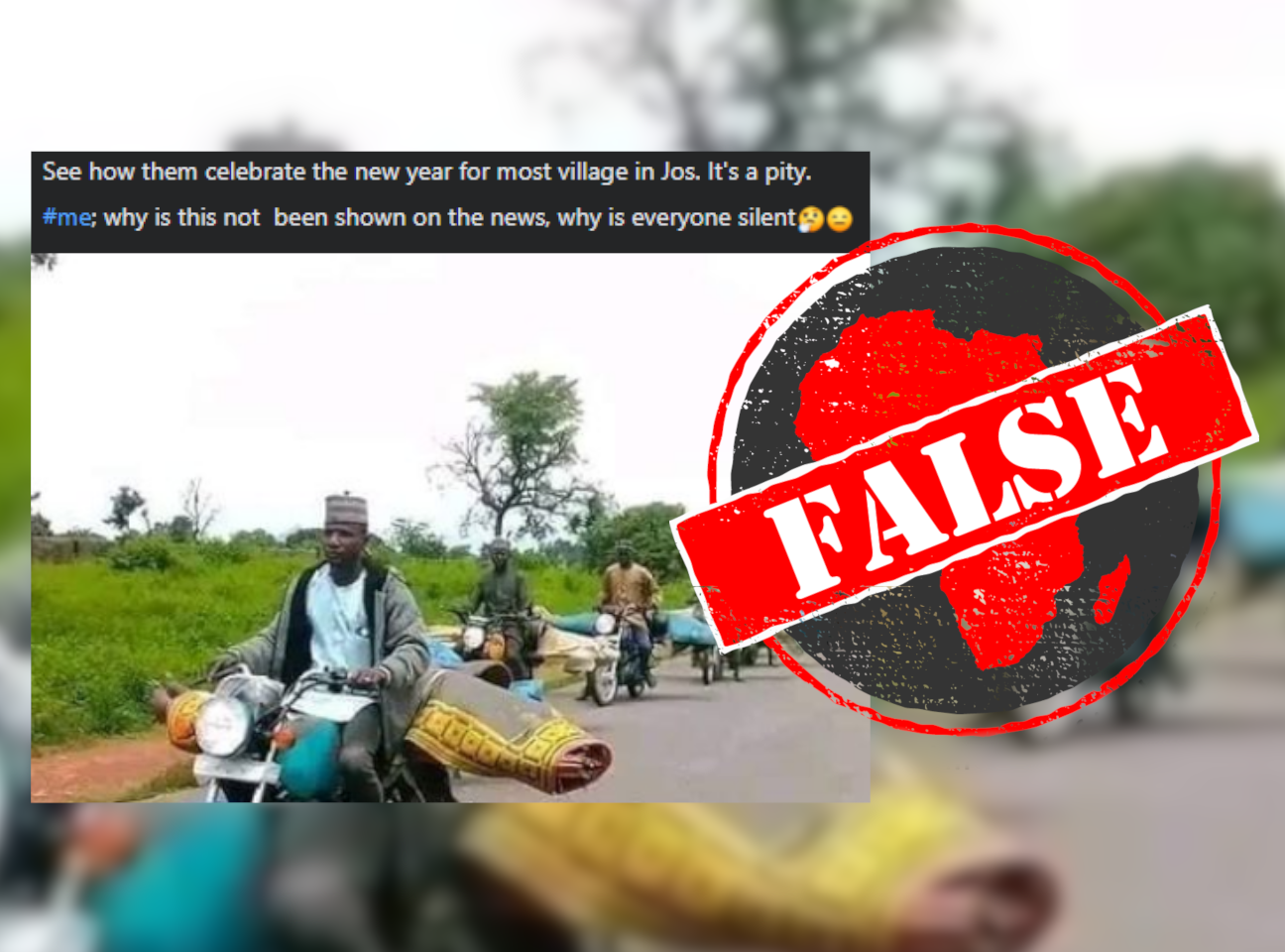IN SHORT: Images of dead bodies strapped to motorcycles don’t show the 2023 Christmas Eve killings in Plateau state, Nigeria. They first appeared online in 2022.
Several Facebook users claim that after the suspected terrorist attack on 24 December 2023 in Nigeria's Plateau state, corpses were taken to a burial site on motorcycles.
As evidence, they've attached two photos of what appear to be dead bodies covered in cloth and strapped to motorcycles.
A post from 4 January 2024, published on a public Facebook group with over 118,000 members, reads: “This exactly how some village in jos celebrate their Xmas and new year for most village in Jos. It's a pity.”
Jos is a city in the north-central Plateau state. On 24 December 2023, gunmen attacked several villages in Plateau, killing over 150 people. Houses were also set alight in the attack. At the time of publication, eight suspects had been arrested.
Similar claims and the same photos can be found here, here, here, here, here, here and here, and on a blog here.
Africa Check previously investigated a claim that two other images – one of the interior of a church and the other of a blood-stained tiled floor – were from the Christmas Eve attack in Plateau. That claim was false.
But is this claim, that bodies were transported on motorcycles after the attack in Plateau, perhaps correct? We checked.

Images are old
Using Google reverse image search, Africa Check found one of the images in a Facebook post dated 7 October 2022.
On 11 October, the same image was used in a blog post about members of a vigilante group who had killed 12 bandits in Taraba state in eastern Nigeria. The term bandits is used in Nigeria to describe armed criminal groups involved in illegal activities.
We found both images on the Facebook page of Nigeria’s Arewa Daily News on 4 October.
The images depict an event in Taraba state and first appeared online in October 2022.
Fact-checking false claims about major events, especially those that cost people their lives, is important to ensure that the aftermath of events is not misrepresented. Fact-checking also helps to limit the spread of panic in a country struggling with terrorism, such as Nigeria.
Republish our content for free
For publishers: what to do if your post is rated false
A fact-checker has rated your Facebook or Instagram post as “false”, “altered”, “partly false” or “missing context”. This could have serious consequences. What do you do?
Click on our guide for the steps you should follow.
Publishers guideAfrica Check teams up with Facebook
Africa Check is a partner in Meta's third-party fact-checking programme to help stop the spread of false information on social media.
The content we rate as “false” will be downgraded on Facebook and Instagram. This means fewer people will see it.
You can also help identify false information on Facebook. This guide explains how.


Add new comment